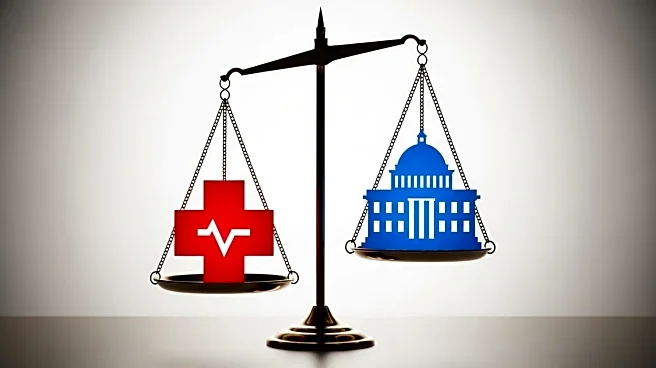What is the story about?
What's Happening?
The U.S. government is currently shut down, with health care subsidies at the center of the debate in Congress. Democrats are pushing for an extension of these subsidies, which were initially increased during the COVID-19 pandemic to make Affordable Care Act (ACA) plans more affordable. However, many Republicans oppose the extension, viewing it as an opportunity to reduce the program's scope. The shutdown has left hundreds of thousands of federal workers unpaid, and the issue remains one of the most challenging to resolve in Congress. Senate Majority Leader John Thune has indicated that Republicans might consider extending the subsidies if the government is reopened, but negotiations have stalled as both parties hold firm on their positions.
Why It's Important?
The outcome of this debate has significant implications for millions of Americans who rely on ACA subsidies to afford health insurance. If subsidies are not extended, many could face increased premiums, impacting their financial stability. The shutdown also affects federal workers and could have broader economic repercussions if prolonged. Politically, the issue highlights the deep divisions in Congress and the challenges of reaching bipartisan agreements on health care. The situation puts pressure on both parties, especially Republicans, as public sentiment appears to favor maintaining the subsidies.
What's Next?
Negotiations are expected to continue, with some Republicans open to extending subsidies temporarily while seeking broader reforms. The government shutdown remains unresolved, and the pressure is mounting as the open enrollment period for ACA plans approaches on November 1. Both parties will need to find common ground to reopen the government and address the subsidy issue, with potential involvement from President Trump to influence the outcome.
Beyond the Headlines
The debate over health care subsidies reflects broader ideological differences regarding the role of government in providing health care. It also raises questions about the sustainability of the ACA and the long-term viability of government-funded health care programs. The situation could lead to shifts in public policy and influence future legislative priorities.














